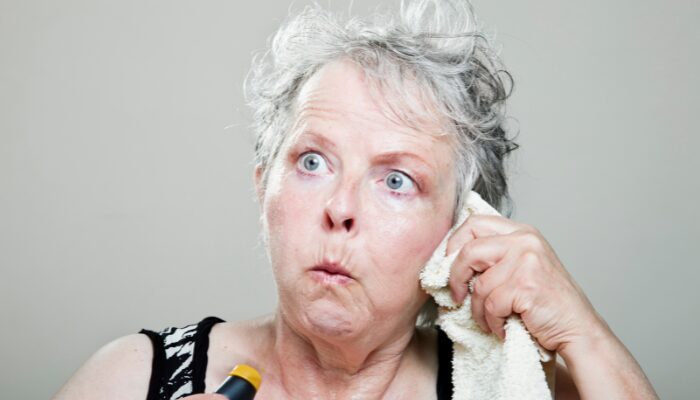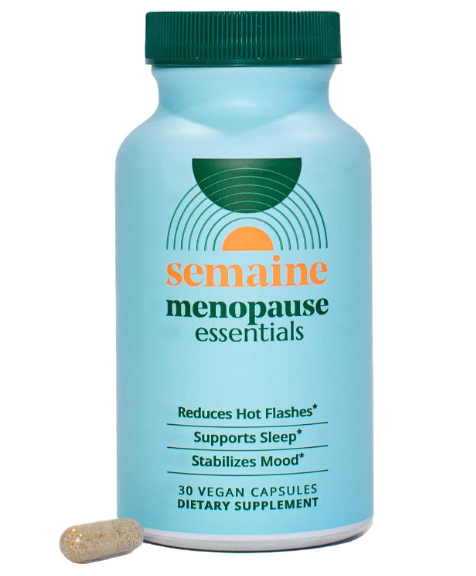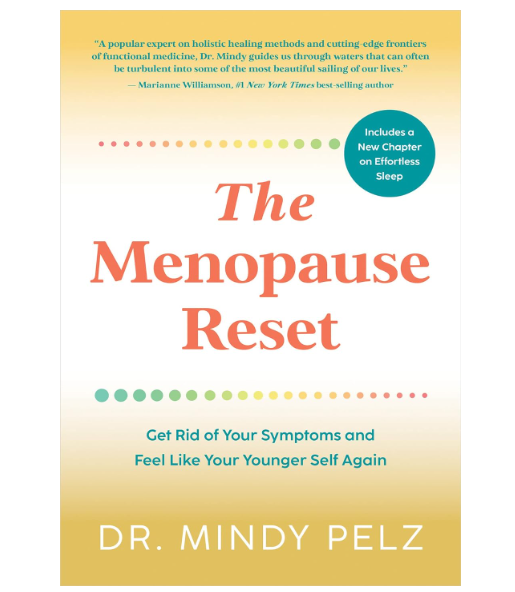How to Keep Hair Healthy During Menopause. Menopause is a natural phase of life that brings about many changes in a woman’s body. One common concern that women may experience during this time is hair loss and thinning. The hormonal changes that occur during menopause, specifically the decrease in estrogen and progesterone levels, can affect the health and vitality of your hair.

In addition to hormonal changes, other factors such as nutrient deficiencies, high stress levels, illness, and genetics can also contribute to hair loss. However, the good news is that there are steps you can take to keep your hair healthy and minimize hair loss during menopause.
Key Points – How to Keep Hair Healthy During Menopause:
- Menopause can cause hair loss and thinning due to hormonal changes.
- Nutrition plays a crucial role in promoting healthy hair growth during menopause.
- Supplements can provide the necessary nutrients for hair health.
- Managing stress levels can positively impact hair health.
- Regular exercise helps maintain hormonal balance and promotes healthy hair growth.
The Role of Nutrition in Hair Health
How to Keep Hair Healthy During Menopause with Diet. Eating a balanced diet that is rich in vitamins and minerals is essential for promoting healthy hair growth during menopause. The right nutrition can provide the necessary nutrients to support strong, vibrant hair.
Several key nutrients play a crucial role in hair health:
- Omega-3 fatty acids: These healthy fats are found in foods such as fish, chia seeds, and walnuts. They can improve hair density and reduce inflammation on the scalp.
- Amino acids: Protein is made up of amino acids, which are the building blocks of hair strands. Including protein-rich foods like lean meats, poultry, beans, and soy products in your diet can support hair growth.
- Minerals: Zinc, selenium, magnesium, and iron are vital minerals for hair health. Zinc and selenium can help prevent hair loss, while magnesium supports hair follicle function. Iron is important for oxygen transportation to the hair follicles. Foods such as nuts, seeds, whole grains, and leafy green vegetables are excellent sources of these minerals.
- B vitamins: Biotin, folic acid, and other B vitamins are essential for healthy hair. They promote hair growth, strengthen the hair shaft, and improve overall hair health. Incorporate foods like eggs, avocados, legumes, and leafy greens into your diet.
- Vitamins A and C: These vitamins are powerful antioxidants that help protect hair follicles from oxidative stress. Foods rich in vitamin A include carrots, sweet potatoes, and spinach. Vitamin C can be found in citrus fruits, berries, and bell peppers.
- Vitamin E: This vitamin supports blood circulation and enhances scalp health. Almonds, sunflower seeds, and spinach are great sources of vitamin E.
- Calcium and sulfur: Calcium helps regulate hair growth, while sulfur aids in the production of keratin, a protein that makes up hair. Incorporate dairy products, dark leafy greens, and eggs into your diet to ensure an adequate intake of calcium and sulfur.
Drinking plenty of water and consuming fruits with high water content, such as watermelon and cucumber, can also contribute to hair hydration and overall hair health.
To give you a better idea of the nutrients to include in your diet, here’s a table of hair-healthy foods:
| Nutrient | Food Sources |
|---|---|
| Omega-3 Fatty Acids | Fatty fish (salmon, mackerel), chia seeds, walnuts |
| Amino Acids | Lean meats, poultry, beans, soy products |
| Minerals (Zinc, Selenium, Magnesium, Iron) | Nuts, seeds, whole grains, leafy green vegetables |
| B Vitamins | Eggs, avocados, legumes, leafy greens |
| Vitamins A and C | Carrots, sweet potatoes, spinach, citrus fruits, berries, bell peppers |
| Vitamin E | Almonds, sunflower seeds, spinach |
| Calcium and Sulfur | Dairy products, dark leafy greens, eggs |
Supplements for Hair Health
How to Keep Hair Healthy During Menopause by taking supplements can be beneficial in promoting hair growth and addressing nutrient deficiencies during menopause. Certain menopause supplements can stimulate hair growth and help reduce hair loss. However, it is important to consult with a doctor before starting any new supplements to ensure they are suitable for you.
Semaine Menopause Supplements on Amazon
Biotin: Biotin, also known as vitamin B7, is a popular supplement for promoting hair growth. It helps strengthen hair follicles and encourages healthy hair growth. Biotin supplements are available over-the-counter and can be taken orally.
Flax Oil: Flax oil is rich in omega-3 fatty acids, which are essential for hair health. Omega-3 fatty acids nourish the hair follicles and promote healthier and stronger hair growth. Flax oil supplements can be found in health food stores and are typically taken orally.
Primrose Oil: Primrose oil is derived from the seeds of the evening primrose plant. It contains gamma-linolenic acid (GLA), which is believed to support healthy hair growth. Primrose oil supplements can be taken orally and are commonly available in health food stores.
Zinc: Zinc is an important mineral for hair growth and health. It is involved in DNA and protein synthesis, which are essential processes for hair follicle development. Zinc supplements can be taken orally and are widely available.
Green Tea: Green tea supplements contain antioxidants that may help reduce hair loss and promote hair growth. The antioxidants in green tea help to protect hair follicles and stimulate hair growth. Green tea supplements can be taken orally and are commonly found in health food stores.
Please note: While supplements can be beneficial for hair health during menopause, they should not replace a balanced diet. It is important to eat a variety of nutrient-rich foods to support overall health and hair growth.
Stress Reduction for Healthy Hair
How to Keep Hair Healthy During Menopause by reducing stress. Managing stress levels is crucial for maintaining healthy hair during menopause. The hormonal changes that occur during this phase can affect the hair growth cycle, leading to increased hair shedding and a decrease in hair thickness. By implementing stress reduction techniques, you can help mitigate these effects and promote optimal hair health.
Practices for Stress Reduction
There are several effective practices that can help reduce stress and preserve hormonal balance during menopause:
- Yoga: Engaging in yoga exercises can help calm the mind, reduce anxiety, and lower stress levels. Yoga poses that promote blood circulation to the scalp, such as the inverted asanas, can be particularly beneficial for hair health.
- Meditation: Taking regular breaks for meditation can help you relax and achieve a state of mental clarity. This practice has been shown to effectively reduce stress and promote overall well-being.
- Breathing relaxation techniques: Deep breathing exercises, such as diaphragmatic breathing or alternate nostril breathing, can activate the body’s relaxation response, relieving stress and tension.
- Getting enough rest: Prioritizing quality sleep is essential for managing stress levels. Aim for 7-8 hours of uninterrupted sleep each night to support hormonal balance and promote hair health.
- Scalp massages: Incorporating regular scalp massages into your hair care routine can help reduce stress and promote blood circulation to the hair follicles. Use gentle circular motions to massage the scalp for a few minutes each day.
By incorporating these stress reduction techniques into your daily routine, you can create a positive impact on your hair health during menopause.

The Importance of Regular Exercise
How to Keep Hair Healthy During Menopause via exercise and fitness. Regular exercise is crucial for maintaining hormonal balance and promoting healthy hair growth during menopause. Engaging in physical activities helps regulate mood swings, maintain a healthy weight, and improve sleep quality. By incorporating exercise into your routine, you can enhance overall well-being and support optimal hair health.
During menopause, hormonal changes can disrupt the hair growth cycle, leading to thinning hair and hair loss. Regular exercise helps regulate hormone levels, including the production of estrogen and other essential hormones, which play a significant role in maintaining healthy hair.
In addition to hormonal balance, exercise benefits hair health through improved circulation. Physical activity increases blood flow to the scalp, delivering essential nutrients and oxygen to the hair follicles. This improved circulation stimulates hair growth and promotes a healthy scalp environment.
There are various types of exercises you can incorporate into your routine to support hair growth during menopause. Low-impact activities like walking, yoga, swimming, and cycling can be beneficial for overall fitness and stress reduction. Strength training exercises help build muscle mass, which is important for hormone regulation and metabolism.
Consider joining a gym or participating in group fitness classes to stay motivated and engaged. Exercising in a social setting can not only provide the physical benefits but also give you the opportunity to connect with others and share experiences.
Remember to consult with your healthcare professional before starting any new exercise regimen, especially if you have any underlying health conditions or concerns.
Hair Care Tips for Menopausal Women
How to Keep Hair Healthy During Menopause – Tips. To keep your hair healthy during menopause, it is crucial to adopt a proper hair care routine. Hormonal changes during menopause can affect the health and appearance of your hair, making it more prone to dryness, breakage, and thinning. By following these hair care tips, you can maintain the vitality of your hair and promote healthy growth.
Avoid Excessive Heat Styling
One of the most important hair care tips for menopausal women is to avoid excessive heat styling. Hair dryers, straighteners, and curling irons can cause significant damage to your hair, leading to breakage and frizz. Opt for natural air drying whenever possible and limit the use of heat styling tools, preserving the health and integrity of your hair.
Use All-Natural Hair Colors
When coloring your hair during menopause, it is advisable to use all-natural hair colors. Chemical-based hair dyes can be harsh on your strands, causing dryness and weakening the hair follicles. Look for gentle, plant-based hair color alternatives that are free from ammonia and harmful chemicals. This will help maintain the moisture balance of your hair while reducing the risk of damage.
Minimize Hair Washing
During menopause, your scalp produces fewer natural oils, resulting in drier hair. To prevent additional dryness and breakage, it is recommended to minimize the frequency of hair washing. Washing your hair every other day or even twice a week can help retain the natural oils and moisture in your hair, promoting its overall health and strength.
Choose Gentle, Moisturizing Shampoos and Conditioners
When selecting hair care products, opt for gentle, moisturizing shampoos and conditioners specifically formulated for menopausal hair. These products are designed to nourish and hydrate your hair, replenishing the lost moisture and enhancing its natural elasticity. Look for ingredients like argan oil, shea butter, and coconut oil to provide deep hydration and promote overall hair health.
Incorporate Weekly Hair Masks or Hot Oil Treatments
Adding weekly hair masks or hot oil treatments to your hair care routine can provide an extra boost of hydration and nourishment. These treatments penetrate the hair strands, replenishing moisture and nutrients from the roots to the tips. Invest in high-quality hair masks or create your own DIY treatments using natural ingredients such as avocado, olive oil, or aloe vera gel.
Protect Your Hair from External Factors
Protecting your hair from external factors is crucial for maintaining its health during menopause. Wear a swimming cap when swimming to shield your hair from damaging chlorine or saltwater. Additionally, when going outside, protect your hair and scalp from harmful UV rays by wearing a hat. These measures will help prevent dryness, sun damage, and maintain healthy hair growth.
By following these hair care tips, you can nourish and protect your hair during menopause, mitigating the effects of hormonal changes and promoting its overall health and vitality.
Medication Considerations
During menopause, it’s important to be aware that certain medications may contribute to hair loss as a side effect. If you’re experiencing significant hair loss and suspect that your medication may be the cause, it’s crucial to consult with your healthcare provider. They can evaluate your medication regimen and provide alternative options that do not have reported side effects on hair growth.
Medications vary in their impact on hair loss, and not everyone will experience this side effect. However, if you notice a significant change in your hair during menopause, it’s always best to seek professional advice to rule out any medication-related factors.
Alternative Remedies for Hair Loss
How to Keep Hair Healthy During Menopause – Alternative methods for thinning hair. During menopause, hair loss can be a common concern. Fortunately, there are alternative remedies that can help address this issue without the potential risks associated with other treatments. Herbal remedies, acupuncture, and scalp massage have been found to be effective in stimulating hair follicles and promoting hair growth. These natural approaches can offer a safe and gentle solution for menopausal women experiencing hair loss.
Herbal remedies, such as saw palmetto, rosemary, and fenugreek, have shown promising results in reducing hair loss and supporting healthy hair growth. They can be consumed as supplements or applied topically in the form of oils or masks. These natural remedies work by nourishing the scalp, improving blood circulation, and balancing hormonal levels.
Acupuncture is another alternative remedy that has been found to be beneficial for hair loss during menopause. By targeting specific acupuncture points related to hair health, this ancient practice can stimulate blood flow, reduce inflammation, and promote the growth of new hair follicles. Acupuncture sessions typically involve the insertion of thin needles into strategic points on the body, including the scalp, to restore balance and stimulate natural healing.
In addition, regular scalp massage can be a simple yet effective way to combat hair loss. Massaging the scalp helps increase blood circulation, which in turn nourishes the hair follicles and promotes hair growth. This gentle and relaxing practice can be done using fingertips or a soft-bristled brush, and can be combined with natural oils or serums to enhance the benefits.
While alternative remedies can offer a holistic approach to hair loss during menopause, it is important to note that hormone replacement therapy (HRT) is another option to consider. HRT involves replacing the hormones that diminish during menopause, which can help manage hair loss. However, it should be discussed with a trichologist or medical professional trained in hair treatment to ensure the right approach and dosage for each individual.
| Alternative Remedies | Benefits |
|---|---|
| Herbal Remedies | – Natural and safe – Stimulate hair follicles – Promote hair growth |
| Acupuncture | – Improve blood circulation – Reduce inflammation – Stimulate new hair follicles |
| Scalp Massage | – Increase blood circulation – Nourish hair follicles – Relaxing and enjoyable |
| Hormone Replacement Therapy (HRT) | – Restore hormonal balance – Manage hair loss |
How to Keep Hair Healthy During Menopause – Round Up
Final thoughts on this How to Keep Hair Healthy During Menopause article. Taking steps to maintain hair health during menopause is crucial for minimizing hair loss and promoting overall well-being. As hormonal changes occur, it is common for menopausal women to experience hair thinning and breakage. However, by implementing certain strategies, you can keep your hair healthy and vibrant.
A balanced diet plays a vital role in nurturing your hair. Ensure you include omega-3 fatty acids, amino acids, zinc, selenium, magnesium, biotin, protein, iron, B vitamins, folic acid, vitamins A and C, vitamin E, calcium, and sulfur in your meals. Incorporating foods such as seeds, nuts, beans, tofu, fish, poultry, dark green vegetables, eggs, whole grains, and low-fat dairy products can provide essential nutrients for healthy hair growth.
In addition to a nutritious diet, consider incorporating supplements such as biotin, flax oil, primrose oil, and zinc to stimulate hair growth. Green tea supplements can also help reduce hair loss. However, always consult with your doctor before starting any new supplements to ensure they are suitable for you.
Reducing stress levels is crucial for maintaining hair health during menopause. Engaging in stress-reducing practices like yoga, meditation, and scalp massages can effectively promote hormonal balance, improve blood circulation, and encourage hair growth. Regular exercise is another important aspect as it helps regulate mood swings, maintain weight, and enhance hormonal balance.
Proper hair care is essential for keeping your hair healthy during menopause. Avoid excessive use of heat styling tools like hair dryers and straighteners, opt for all-natural hair colors, and minimize hair washing to prevent drying and breakage. Choose gentle, moisturizing shampoos and conditioners, and consider incorporating weekly hair masks or hot oil treatments. Additionally, protect your scalp by wearing a swimming cap and a hat when exposed to the sun.
Discussing any medications you are taking with your doctor is important, as some medications can contribute to hair loss during menopause. They may be able to offer alternative options that do not have reported side effects. Lastly, alternative remedies such as herbal remedies, acupuncture, and scalp massage can be effective in stimulating hair follicles and promoting hair growth. While hormone replacement therapy (HRT) is another option, it should be discussed with a trichologist or a medical professional trained in hair treatment.
By following these “How to Keep Hair Healthy During Menopause” guidelines, you can prioritize your hair health during menopause and enjoy luscious locks while embracing this new chapter of your life.

FAQ – How to Keep Hair Healthy During Menopause
Can menopause cause hair loss?
Yes, menopause can cause hair loss and thinning in women due to hormonal changes, specifically decreased levels of estrogen and progesterone.
What are the factors that can contribute to hair loss during menopause?
Other factors that can contribute to hair loss during menopause include nutrient deficiencies, high stress levels, illness, and genetics.
How does nutrition affect hair health during menopause?
Eating a balanced diet that is rich in vitamins and minerals is essential for healthy hair growth during menopause. Omega-3 fatty acids, amino acids, zinc, selenium, magnesium, biotin, protein, iron, B vitamins, folic acid, vitamins A and C, vitamin E, calcium, and sulfur all play a role in promoting healthy hair.
Can supplements help promote hair growth during menopause?
Taking supplements can help provide the nutrients that may be lacking in the diet and promote hair growth during menopause. Biotin, flax oil, primrose oil, and zinc supplements can stimulate hair growth.
How can stress reduction affect hair health during menopause?
Managing stress levels can have a positive impact on hair health during menopause. Practices such as yoga, meditation, and breathing relaxation techniques can effectively reduce stress and preserve hormonal balance.
Does regular exercise promote healthy hair growth during menopause?
Regular exercise is important for maintaining hormonal balance, which in turn promotes healthy hair growth during menopause. Exercise can help regulate mood swings, maintain weight, and improve sleep quality.
What hair care tips should menopausal women follow?
To keep hair healthy during menopause, it is recommended to avoid excessive heat styling tools, use all-natural hair colors, minimize hair washing, use gentle, moisturizing shampoos and conditioners, and incorporate weekly hair masks or hot oil treatments.
Can medication cause hair loss during menopause?
Yes, some medications can cause hair loss as a side effect. It is important to speak to a doctor if experiencing significant hair loss during menopause and suspect that medication may be the cause.
Are there alternative remedies for hair loss during menopause?
Alternative remedies such as herbal remedies, acupuncture, and scalp massage can be effective at treating hair loss during menopause. Hormone replacement therapy (HRT) is another option that should be discussed with a trichologist or medical professional trained in hair treatment.





